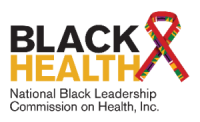Larry Howard - Black Health
lhoward@nblch.org
(212)614-0023 ext. 113
(Black PR Wire) The National Black Leadership Commission on Health (Black Health) commends the U.S. Government and New York City Council for their swift action in creating a plan and disseminating vaccines in response to the recent increase in Monkeypox infections. While these actions are commendable, it is critical that we learn from our experiences with COVID-19 and not repeat the mistakes of the past. In this regard, Black Health highlights some major concerns for immediate attention.
Monkeypox virus, a type of Orthopoxvirus, typically causes an infection that results in rashes, blisters and flu-like symptoms. There are currently two vaccines, a subcutaneous and an intradermal, that are being offered to high-risk populations across the county. The current definition of who is high-risk is far too limited. While not as contagious as other viruses, such as COVID-19, Monkeypox is reportedly only spread through direct contact with rashes, sores and/or bodily fluids of an infected person, such as through kissing, sexual activity, or sharing clothes, bed sheets or food.
Regrettably, the current language used on New York City’s website stigmatizes the LGBTQ+ community, mentioning “sex parties” and “fetish gear” alongside “men who have sex with men”. It further does not consider other high-risk populations, such as black and brown women, and people who live in lower-income zip codes.
Messaging around Monkeypox must be culturally sensitive, and consider the varying racial, ethnic and historical backgrounds of the communities targeted. It must also use language that is accessible to all people regardless of their level of education. Only then can MonkeyPox be adequately addressed.
Black Health champions the promotion of health and prevention of diseases to reduce disparities and achieve equity within the black community. Black Health responds to the impact of public policies on the communities we serve, with an aim to reduce health disparities and promote equity, by serving as a bridge between legislators and constituents. Our policy and advocacy activities include community mobilization and capacity building, public education and awareness campaigns, civic engagement initiatives and developing youth and future clinicians as leaders in the community.

